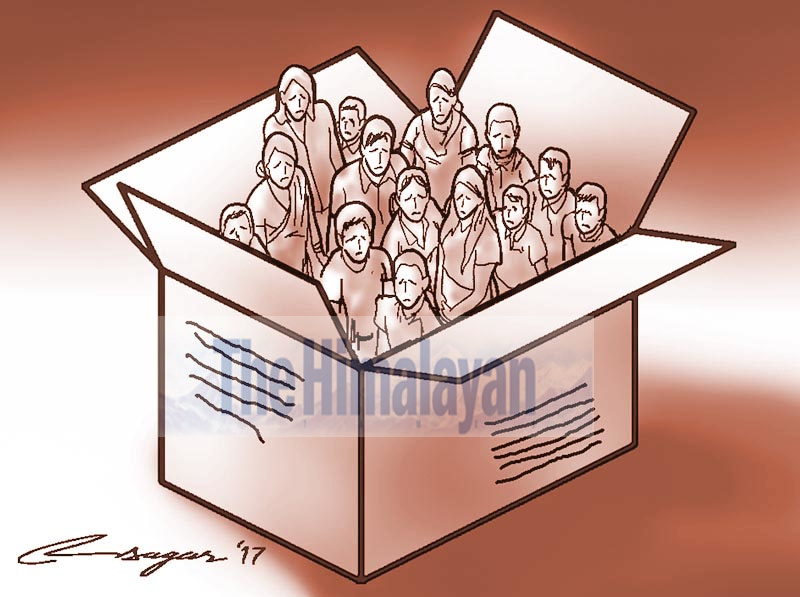USAID, DIFID to combat human trafficking
Kathmandu, June 13
Development agencies of the United States and the United Kingdom today announced a partnership to support the Government of Nepal in combating human trafficking.
Partnership between the United States Agency for International Development and the United Kingdom’s Department for International Development will expand USAID’s ongoing Hamro Samman Project to support the government’s efforts to combat human trafficking in 10 districts.
Speaking at the signing ceremony, USAID Nepal Mission Director Amy Tohill-Stull said, “For over a decade, USAID’s support has enabled Nepal to strengthen its 49 policies to prevent human trafficking, prosecute traffickers and protect and rehabilitate survivors. We are pleased that DFID has joined our partnership. Joint collaboration will enable us to expand our efforts to address this serious issue.”
Head of DFID in Nepal Rurik Marsden said, “The UK is committed to working with the Government of Nepal to help end modern slavery in Nepal. We are happy to join hands with USAID in this mission. I am confident that DFID’s contribution will help strengthen government mechanism to address human trafficking and generate better plans to curtail the crime.”
The US Government’s Trafficking in Person Report-2018, ranks Nepal as a tier two country and identifies it as a source, transit and destination country for human trafficking. While this report estimates that 30,000 Nepali girls and women are commercially exploited for sex each year, Global Slavery Index 2018 estimates that 171,000 Nepalis are subject to slavery at any given time, according to a press release issued by the US embassy in Kathmandu.
Despite these challenges, Hamro Samman, which was initiated in 2017 and is implemented by Winrock International, has made substantial strides in reducing human trafficking in Nepal, stated the release.
Over the project’s remaining three years, the partnership with DFID will add to Hamro Samman’s past success in combining human trafficking.






